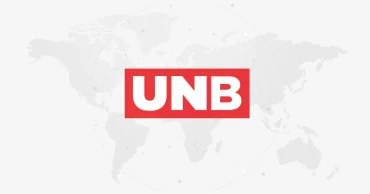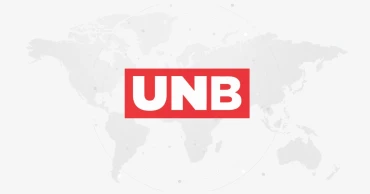black money whitening
NBR brings back individual black money whitening opportunities in next budget
The National Board of Revenue (NBR) has decided to allow black money whitening by paying just 15 percent tax for individuals.
In the next budget for the fiscal year 2024-25, the NBR brings back the opportunity of individual black money whitening closing such opportunities as investing in Economic Zones or high-tech parks. In the last five years, the opportunity of whitening black money was available in EZs, but not a single penny of black money was being invested.
Under the new rules, black money can be turned into white without question by paying only 15 percent tax, said sources of the budget section of NBR.
According to the sources, to bring black money into the mainstream of the economy, the 2019-20 budget allowed unquestioned investment in economic zones or hi-tech parks. Then finance minister AHM Mustafa Kamal said in the budget speech that the income arising from the production of goods or services in economic zones and hi-tech parks has been given tax exemption at various rates for 10 years.
Junior finance minister gets coy over keeping provision for whitening black money in next budget
A tax of 10 percent on the money invested from undisclosed income in setting up industries in economic zones and hi-tech parks to increase investment and create employment. Such investment would not raise any question from the Income Tax Department about the source of that invested money.
After several years economic zones or hi-tech parks got the opportunity to invest black money. But no one took this opportunity in 5 years. This facility is scheduled to expire on June 30 of the current fiscal year 2023-24. Therefore, black money investment in new economic zones or hi-tech parks is not allowed as part of the advice of the International Monetary Fund (IMF).
Instead, an opportunity to legitimize black money or undeclared income is being offered under a general amnesty (tax amnesty). Of course, for this, you will have to pay more income tax than before.
HC summons BFIU chief over 'incomplete report' on black money in Swiss banks
Earlier black money could be whitened by a 10 percent tax, in the future, it will be 15 percent. If the money is legalized in this way, no other organization of the government can question this, said an official of NBR.
1 year ago
Black money whitening got little response in FY 22: NBR data
The number of black money holders paying taxes under an amnesty decreased by 80.83 per cent to 2300 in the FY2021-22 down from12000 in the previous fiscal year, according to latest NBR data available on Monday
In the last financial year, there was an opportunity to whiten all kinds of black money by combining the stock market, land-flat purchases, and the money kept in the bank.
But at the end of the year, it was found that despite the opportunity, only 2,300 taxpayers came forward.
Also read: Whitening black money: Stock exchanges ask NBR to continue it in stock market
The poor response is attributed to higher tax rates imposed last year.
In the FY21, the tax rate was only 10 per cent compared to 25 per cent in the FY 22.
Besides 5 per cent penalty on that tax had to be paid to whiten black money. As a result, the total tax rate stood at 26.25 per cent.
Also read: NBR dreams to cross revenue Tk3.0 lakh crore in FY 22
A top official of the National Board of Revenue (NBR) said that the response was low due to this.
Dr Iftekharuzzaman, executive director of Transparency International Bangladesh (TIB), told UNB that giving such an opportunity is unethical, discriminatory and against the constitution.
It proved that little was gained from such opportunities given at the expense of morality, he said.
Such opportunities provide protection only to the corrupt and encourage corruption, said the TIB chief.
Read Finance bill 2022 passed with limits on proposal to whiten black money
3 years ago
No Whitening of Black Money: TIB cautious in welcoming govt’s 'realisation'
Transparency International Bangladesh (TIB), the corruption watchdog, has cautiously welcomed the government's decision to discard the provision of whitening black money in the proposed budget for the next fiscal (2021-22).
Besides, the TIB is also drawing attention to the fact that this discriminatory and unconstitutional benefit should not be included in any other way out of respect to the honest taxpayers.
Also read: Provision for black money whitening to continue: Finance Minister
The TIB has expressed concern over the lack of a clear roadmap to ensure transparency and prevention of corruption in the overall budget implementation, not just the increase in allocations to critical sectors such as the health sector to control Covid.
TIB Executive Director Dr Iftekharuzzaman in a statement on Thursday night said despite strong objections and protests from all quarters, Finance Minister AHM Mustafa Kamal allowed whitening black money in the outgoing budget.
Also read: Black money: CPD for breaking vicious circle of illicit income
“The decision of the finance minister not to renew the whitening of black money in the proposed budget for the next fiscal year can be taken as a realization of the government," he said.
The TIB Executive Director said they want to believe that the authorities will not continue this unethical benefit under the pressure of vested interests again in future, while respecting the Prime Minister's dictum of 'zero tolerance against corruption'.
4 years ago
Black money: CPD for breaking vicious circle of illicit income
Speakers at a webinar on Tuesday said only providing chance to whiten black money will not benefit the country’s economy unless the vicious circle of illicit income is broken.
5 years ago
World Bank prediction on Bangladesh economy inconsistent: Finance Minister
Finance Minister AHM Mustafa Kamal has said that the World Bank is not consistent in its prediction about the economy of Bangladesh.
5 years ago
GM Quader opposes scope for 'wholesale whitening' of black money
Deputy Opposition Leader in Parliament GM Quader on Monday said the provision allowing wholesale whitening of black money should be scrapped from the upcoming national budget for 2020-21 fiscal year.
5 years ago
Budget: TIB against allowing black money whitening
Transparency International Bangladesh (TIB) on Tuesday urged the government not to keep any provision of whitening of black money in the forthcoming national budget in the name of creating employment by attracting investment and boosting revenue generation.
The Bangladesh chapter of the Berlin-based organisation termed such scope in the budget "discriminatory and unconstitutional" and graft-supportive one.
The second budget session (8th session) of the 11th parliament will begin at 5 pm on Wednesday amid the COVID-19 pandemic in the country.
Finance Minister AHM Mustafa Kamal will place a Tk 556,978-crore proposed national budget for the 2020-21 fiscal year in the House giving an outline of recovering the economy from the negative impacts of COVID-19 pandemic in his budget speech.
The Finance Minister will also narrate various steps so far the government has already taken to face the adverse impact of the COVID-19 and save people’s lives and livelihoods.
Citing media reports, TIB condemned the government move to expand scope of whitening undisclosed money through buying flats, land as well as investing those in development projects and the stock market , said a press release.
“The forthcoming budget is not only giving the opportunity to whiten black money on a large scale but also it's going to remove the provision of Anti-Corruption Commission to question the source...it cannot be desired,” said TIB Executive Director Dr Iftekharuzzaman.
He noted that the country's economy never benefited from this facility in the past years neither it helped to collect significant revenue. “Rather it questioned the government's anti-corruption stance.”
The TIB Executive Director urged the government to refrain from taking such a move and termed it ‘discriminatory’ towards the honest citizens.
TIB demanded swift initiative to investigate huge foreign investments by multiple influential individuals and groups.
“I urge the government to take appropriate and effective accountability measures by exploring their sources of money instead of indulging them,” Dr Iftekharuzzaman said.
He highlighted the tragic exposure of the rela condition on the country’s health sector due to the COVID-19 situation. “Such a fragile situation in the health sector was not created in one day.”
"Years after years, inadequate funding in the health sector, lack of coherence in spending, and rampant corruption in the sector have led to such catastrophes," he said.
TIB put forward a set of recommendations for the forthcoming national budget which includes adequate allocations to the health sector, increasing employment, and social security for people who have recently fallen below the poverty line due to the pandemic.
They also demanded an effective anti-corruption roadmap by ensuring transparency and accountability in all types of procurement, distribution and expenditure in these sectors.
5 years ago

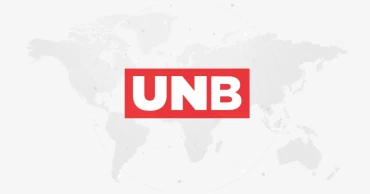
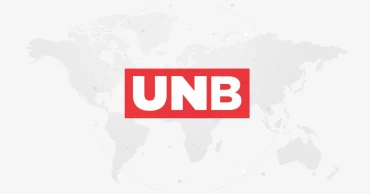
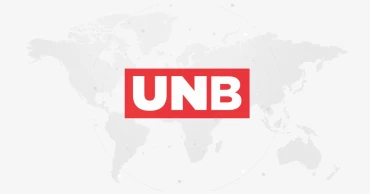
.jpg)
